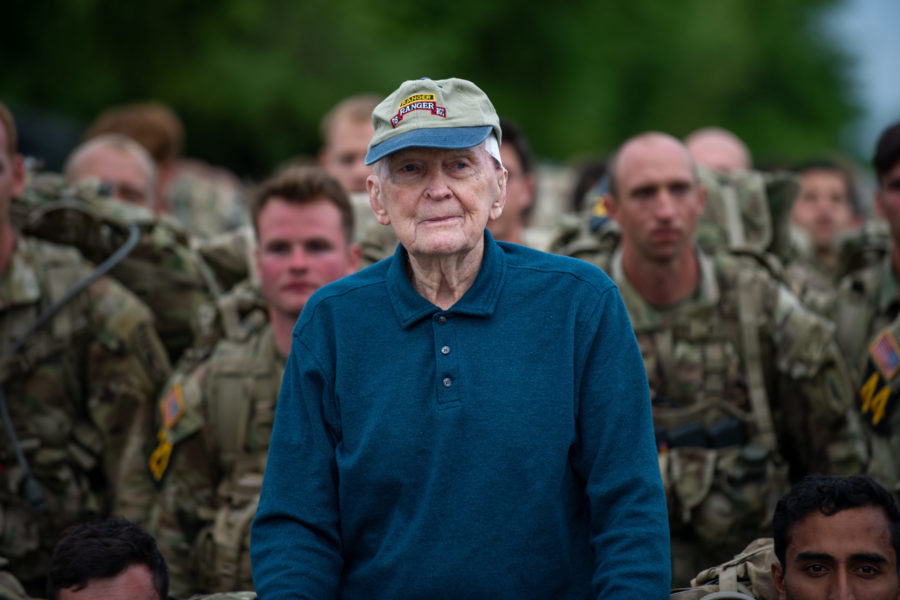President Joe Biden on May 21 will award the Medal of Honor to retired Army Col. Ralph Puckett Jr. for his actions during the Korean War in 1950.
The award will be the first from Biden during his presidency, and South Korean President Moon Jae-in will attend the White House ceremony.
Puckett, then a first lieutenant, was serving with the 8th Army Ranger Company during Nov. 25-26, 1950, when his unit conducted a daylight attack on Hill 205. The team faced enemy mortar, machine gun, and small arms fire.
During the advance, Puckett mounted the closest tank to obtain supporting fire. He jumped from the tank, shouting encouragement to his men, and led the Rangers in the attack, according to a White House description of the events.
Enemy fire pinned down one platoon. Puckett, with “full knowledge of the danger,” ran across an open area three times to draw enemy fire. This allowed his team to find and destroy enemy positions, and then the Rangers seized the hill.
Throughout the following night, the enemy conducted a four-hour-long counter attack. Five human wave attacks from a battalion-strength enemy element were repulsed. During one attack, Puckett was hit by grenade fragments, but he refused evacuation and stayed to direct artillery support, according to the description.
After a sixth enemy attack, two mortar rounds landed in Puckett’s foxhole, causing “grievous wounds which limited his mobility.” Puckett, knowing how dangerous the situation was becoming, ordered his Rangers to leave him behind. His team, “feeling a sense of duty to aid him,” refused the order, and worked through enemy fire to retrieve him from the foxhole.
The team moved back down the hill, and Puckett called for “devastating artillery fire on the top of the enemy controlled hill.”
Puckett, now 94, lives in Columbus, Georgia, with his wife of 68 years. He first enlisted in the Army Enlisted Reserve Corps in December 1943 as a private and was subsequently discharged less than two years later to attend the U.S. Military Academy. He was commissioned in 1949 and served in Korea from Aug. 26, 1950, to Nov. 26, 1950. From July 1967 to July 1968, he served in the Vietnam War with the 101st Airborne Division. He retired from Active duty in 1971.

